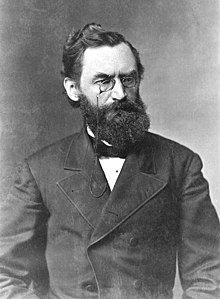 |
| General Carl Schurz |
WASHINGTON, June 16, 1862.
Brigadier-General SCHURZ,
Mount Jackson, Va.:
Your long letter is received. The information you give is valuable. You say it is fortunate that Fremont did not intercept Jackson; that Jackson had the superior force, and would have overwhelmed him. If this is so, how happened it that Fremont fairly fought and routed him ont he 8th? Or is the account that he did fight and rout him false and fabricated? Both General Fremont and you speak of Jackson having beaten Shields. By our accounts he did not beat Shields. He had no engagement with Shields. He did meet and drive back with disaster about 2,000 of Shields' advance till they were met by an additional brigade of Shields, when Jackson himself turned and retreated. Shields himself and more than half his force were not nearer than 20 miles to any of it.
A. LINCOLN.
HEADQUARTERS,
Mount Jackson, June 16, 1862.
The PRESIDENT:
Your dispatch received. About the correctness of General Fremont's report there can be no question. When he attacked Jackson at Cross Keys the co-operation of General Shields was expected-Jackson being immediately between them-when Shields withdrew and Jackson was largely re-enforced. The conditions were no longer the same, and it was in reference to this new state of things that my letter was written. As to Shields, I wrote on the information I had. More by letter.
C. SCHURZ.
Official Records, Series I., Vol. 12, Part 3, Page 399.
Lincoln obviously was getting information on the battle of Cross Keys which did not square with reality. After the war Schurz would be known for his non-partisan political stances and emphasis on integrity. But in this case it is difficult to understand how he would validate any account of the battle which fashioned Fremont as "routing" Jackson. Schurz was not a great general, but he was important to Lincoln as a bridge to the German community. Later in the war he would make campaign appearances on the President's behalf. After the war he was a leading figure in American politics, taking an independent course. He was known for stressing principle over politics and was one of the first "anti-imperialists", opposed to the use of military power to expand American influence abroad.
-
No comments:
Post a Comment